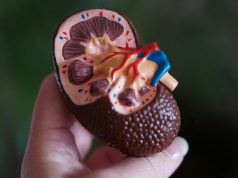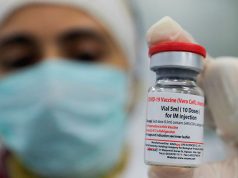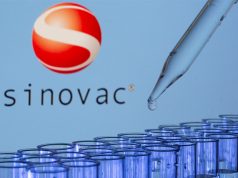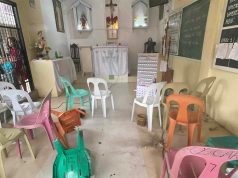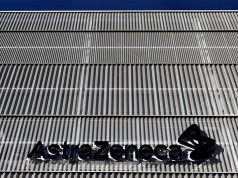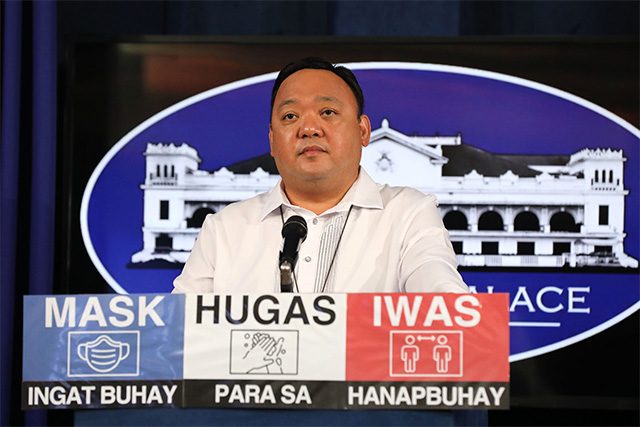
Presidential spokesperson Harry Roque said that Filipinos on the national government’s vaccination priority list cannot choose the brand of COVID-19 vaccine they will be receiving.
The Palace official in his Monday press briefing said that those who refuse to be vaccinated but are part of the priority list will have to sign a waiver signifying their refusal to get a free COVID-19 vaccine.
They will then lose their slot and instead, will have the option to wait for other vaccines along with the general population.
“Wala pong pilian, wala po kasing pilitan… So tama lang naman po iyan ‘no, walang pilian kasi hindi naman natin maku-control talaga kung anong darating ‘no at libre po ito ‘no,” Roque said in the briefing, citing that vaccine availability partly depends on the supplies of the vaccine developers.
“Totoo po, meron tayong lahat na karapatan para sa mabuting kalusugan pero hindi naman po pwede na pihikan dahil napakaraming Pilipino na dapat turukan,” he added.
Those in the foremost priority list are frontline medical workers, indigent senior citizens, remaining senior citizens, the remaining indigent population and uniformed personnel such as the AFP and PNP.
In a Senate hearing, vaccine czar Carlito Galvez said that the COVID-19 vaccination rollout is expected to begin as early as February.
Palace said the country has secured 25 million vaccine doses from Sinovac.
Of which, an initial batch of 50,000 doses is expected to arrive in February, with batches arriving throughout the year.
The Philippines has likewise inked deals with the United Kingdom’s AstraZeneca and Indian-made Covovax.
READ: Philippines signs deal to secure 30M doses of COVID-19 vaccine Covovax – distributor
Covovax is the vaccine of Serum Institute of India, which has partnered with US-based biotechnology company Novavax for the development and commercialization of the vaccine.
Those that have applied for an emergency use authorization before the Food and Drug Administration are US’ Pfizer, AstraZeneca and Russia’s Gamaleya.
Meanwhile, some Filipinos did not warmly receive Roque’s remarks about being unable to choose the brand of COVID-19 vaccine they would get under the national government’s immunization drive.
“Fact is, Filipinos do have and should have the choice on what vaccine they prefer. I find this statement by @attyharryroque dangerous, unhinged, and devoid of common and natural sense. We should be enabling fellow Filipinos to perform informed decisions,” a Twitter user said in response to the reports.
“Filipinos deserve so much better. Pwede tayong maging pihikan because we can afford it. (Its) just that you have chosen the worst option for the people. You have chosen to make the people feel unsafe. We deserve better,” another online user wrote.
“The safety of everyone is their right so taxpayers and everyone in the PH deserve (a) much effective vaccine,” commented another Twitter user.
“Kalusugan at buhay ang usapin dito, may karapatan ang bawat Pilipino na maging pihikan at mapanuri sa kung ano ang ituturok sa kanila,” a different Filipino likewise pointed out.
Filipinos questioned the national government’s choice to procure millions of doses from Sinovac and compared it to some local government units that announced their intention to buy from AstraZeneca.
Sinovac has a reported efficacy rate of 78% while AstraZeneca has a 90% efficacy rate if the first dose is given in half and the second one, in full.
Sen. Ping Lacson and Dr. Tony Leachon, former special adviser to the National Task Force against COVID-19, previously expressed their concerns about Sinovac, which were reported to have produced a moderate immune response.
READ: Juxtaposed: National gov’t procures Sinovac vaccines while some LGUs ink deal with AstraZeneca
Last November, some Filipinos also questioned Sinovac’s efficacy rate and the mixed findings in its early vaccine trials.
The vaccine generated a lower immune response to the virus as compared with those who have developed antibodies after being infected.





